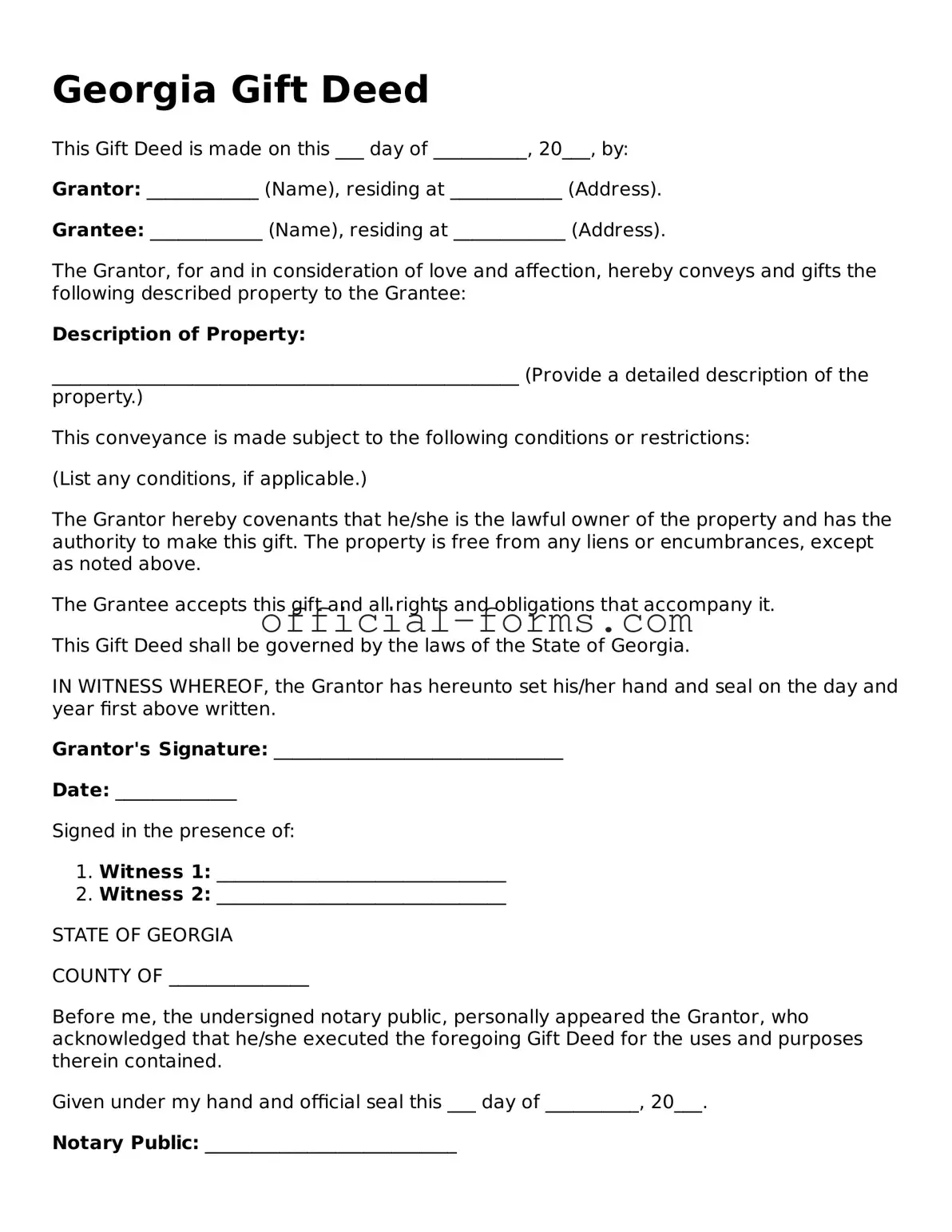Completing a Georgia Gift Deed form can be a straightforward process, but several common mistakes can lead to complications. Awareness of these pitfalls can save time and prevent legal issues down the line.
One frequent error involves failing to provide complete and accurate information about the donor and the recipient. Both parties' names, addresses, and signatures must be clearly stated. Inaccuracies can lead to questions about the validity of the deed. It is essential to double-check all details before submitting the form.
Another mistake is neglecting to include a proper description of the property being gifted. The deed should specify the property type, including any relevant details such as location or parcel number. Without this information, the deed may be deemed incomplete, creating confusion regarding ownership.
Many people overlook the importance of notarization. A Gift Deed in Georgia typically requires the signatures of both the donor and the recipient to be notarized. Failing to have the document notarized can invalidate the gift, leaving the property transfer in limbo.
Some individuals mistakenly believe that a Gift Deed does not need to be recorded. However, for the transfer to be recognized publicly, it must be filed with the county clerk's office. This step is crucial for establishing legal ownership and protecting the recipient's rights.
Additionally, individuals often forget to consider tax implications. While gifts may not incur income tax, they can affect estate taxes and gift tax limits. Consulting a tax professional before finalizing the deed can help avoid unexpected financial consequences.
Another common oversight is not providing clear intent. The deed should explicitly state that the transfer is a gift. Ambiguities in language can lead to disputes later on, especially if the donor and recipient have a complicated relationship.
Some people fail to communicate with all parties involved. If the property has multiple owners or if there are heirs, it is essential to inform them about the gift. Lack of communication can lead to conflicts or claims against the property later.
Moreover, neglecting to review the deed for compliance with Georgia laws is a significant mistake. Each state has specific requirements for gift deeds. Ensuring that the form meets all legal standards is vital for its validity.
Finally, many individuals do not keep a copy of the completed Gift Deed. Retaining a copy for personal records is important, as it serves as proof of the transaction and can be referenced in the future if any questions arise.

